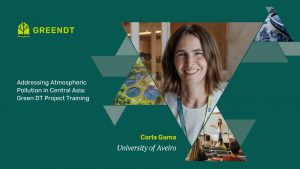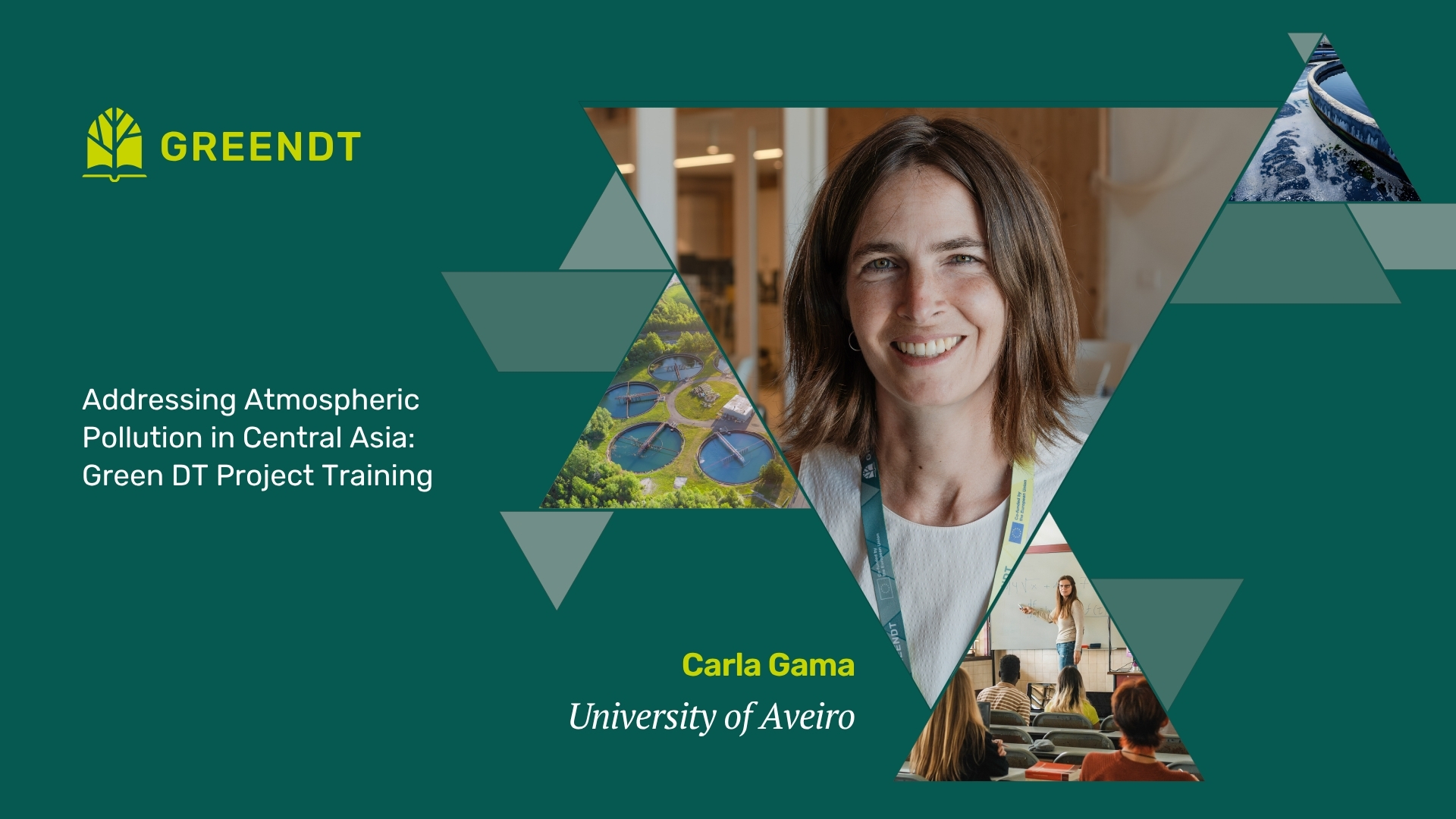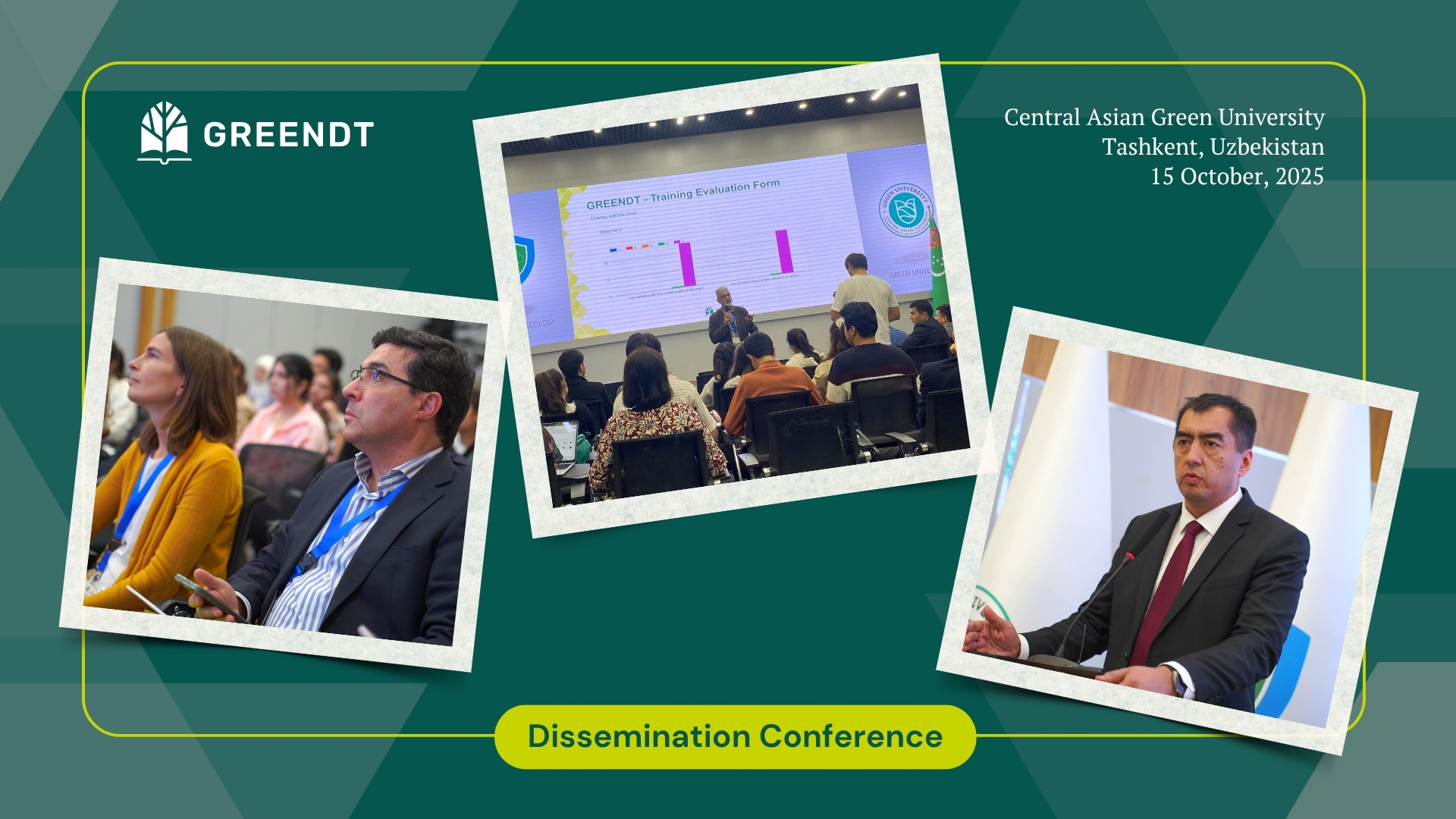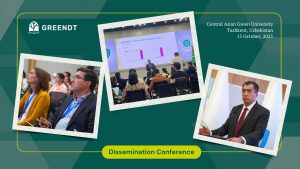Preparation of Didactic Materials on Air Pollution and Climate Change

The GREENDT project continues to advance its mission of transforming environmental and engineering education across Central Asia through its third Train-the-Trainers (ToT) workshop, titled “Preparation of Didactic Materials on Air Pollution and Climate Change.”
Held from 15–17 October 2025 at the Central Asian University of Environmental and Climate Change Studies (Green University) in Tashkent, Uzbekistan, the workshop aimed to strengthen educators’ abilities to design, adapt, and implement effective teaching resources on air pollution, air quality management, and climate change mitigation.
Day 1 – Understanding Atmospheric Emissions and Air Quality Fundamentals
The first day provided a scientific foundation for understanding air pollution dynamics. Participants explored the sources and classifications of atmospheric emissions, the interaction between meteorological conditions and pollutant dispersion, and the principles of air quality assessment.
Hands-on exercises using OpenAir, an open-source analytical tool, enabled participants to visualize and interpret real-world air quality datasets. Through guided practice, they learned to process monitoring data, identify pollution episodes, and generate graphical outputs for teaching and policy discussions.
Day 2 – Pollutants, Health Impacts, and Atmospheric Chemistry
The second day deepened the focus on the chemical and health dimensions of air pollution. Sessions examined the formation pathways of primary and secondary pollutants, their toxicological effects on human health, and chemical transformation mechanisms occurring in the atmosphere.
Participants engaged with the CLASS model (Chemistry Land-surface Atmosphere Soil Slab) to simulate atmospheric processes such as photochemical reactions and pollutant transport. These simulations served as a basis for developing interactive classroom exercises and case studies that link theory to practical environmental scenarios in Central Asia.
Day 3 – Monitoring, Modelling, and Climate Interactions
The final day focused on integrating monitoring techniques, modelling tools, and climate change considerations. Participants learned about state-of-the-art air quality monitoring networks, data calibration techniques, and forecasting methods for predicting pollution levels.
Practical sessions on remote sensing and satellite data analysis introduced participants to the use of atmospheric imagery for identifying large-scale pollution patterns and climate feedback loops. Laboratory demonstrations on aerosol sampling and chemical analysis further complemented these digital methods, helping educators translate complex scientific tools into accessible learning experiences.
The day concluded with a collaborative session to review and refine the didactic materials developed throughout the workshop. Participants discussed how to integrate these resources into existing curricula, ensuring that future engineers and environmental scientists gain both theoretical knowledge and practical analytical skills.
Towards Sustainable Air Quality Education
This third ToT workshop marked a major milestone in GREENDT’s effort to empower educators and researchers with advanced methodologies for teaching air pollution and climate change. By combining scientific depth, data-driven analysis, and applied learning, the workshop equipped participants to produce high-quality educational materials that will enhance environmental education across the region.
Through this initiative, GREENDT continues to build a network of trainers capable of fostering sustainability-focused education and supporting evidence-based decision-making in air quality and climate management — contributing to a cleaner, healthier, and more resilient future for Central Asia and beyond.





